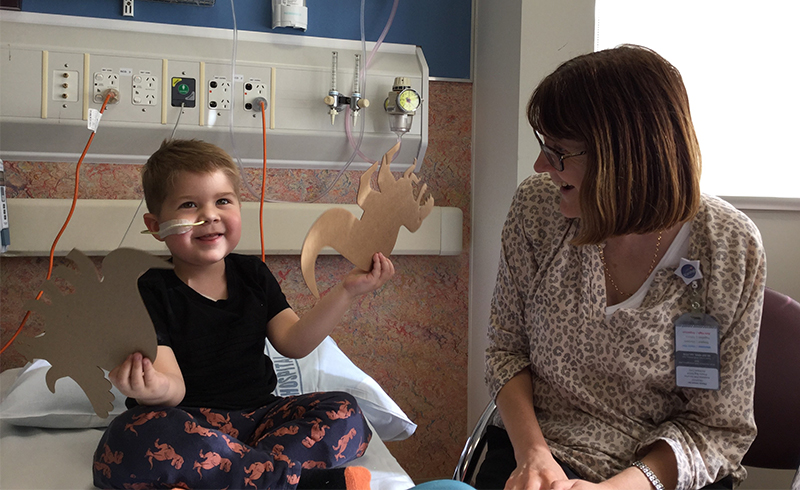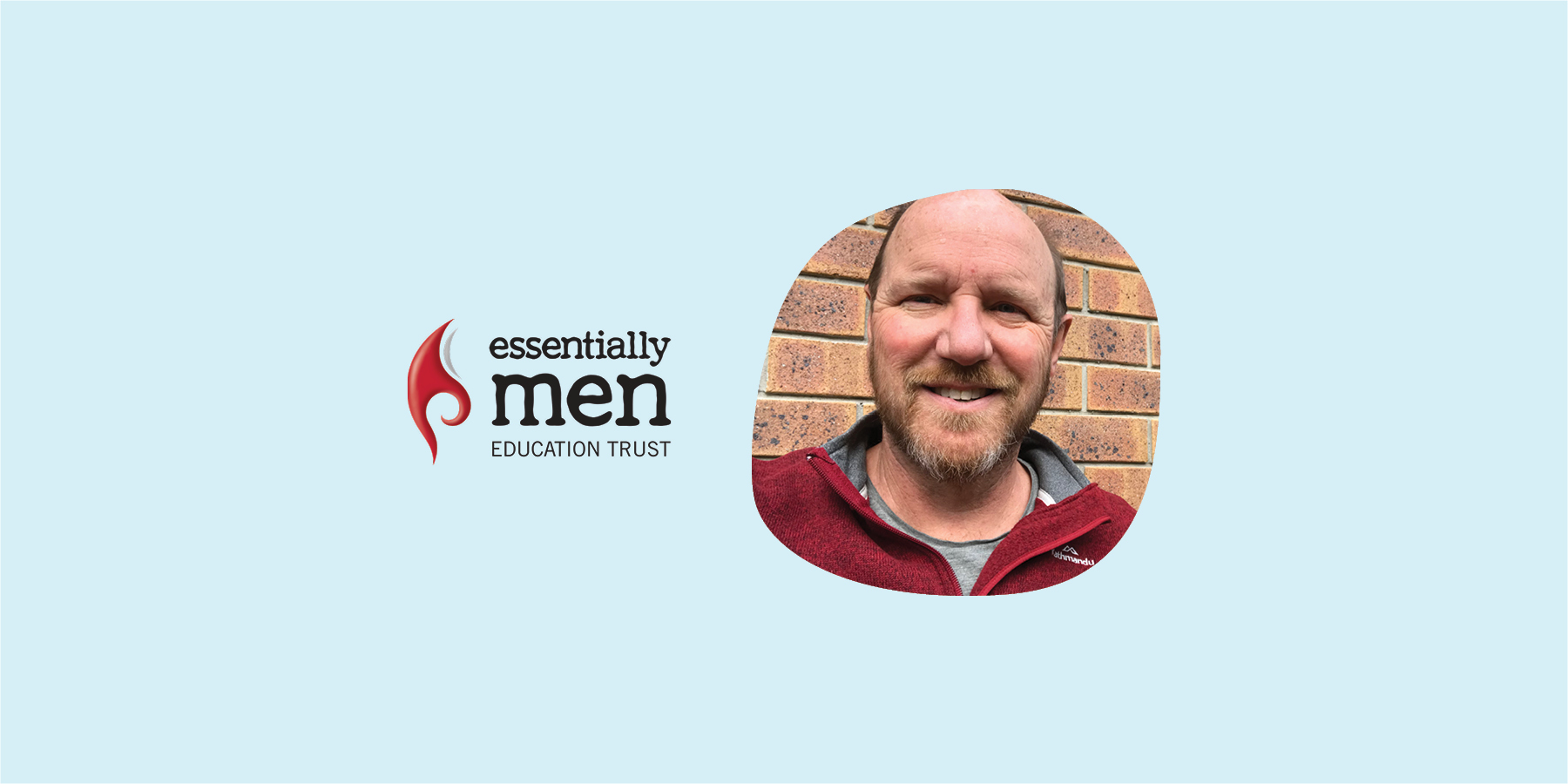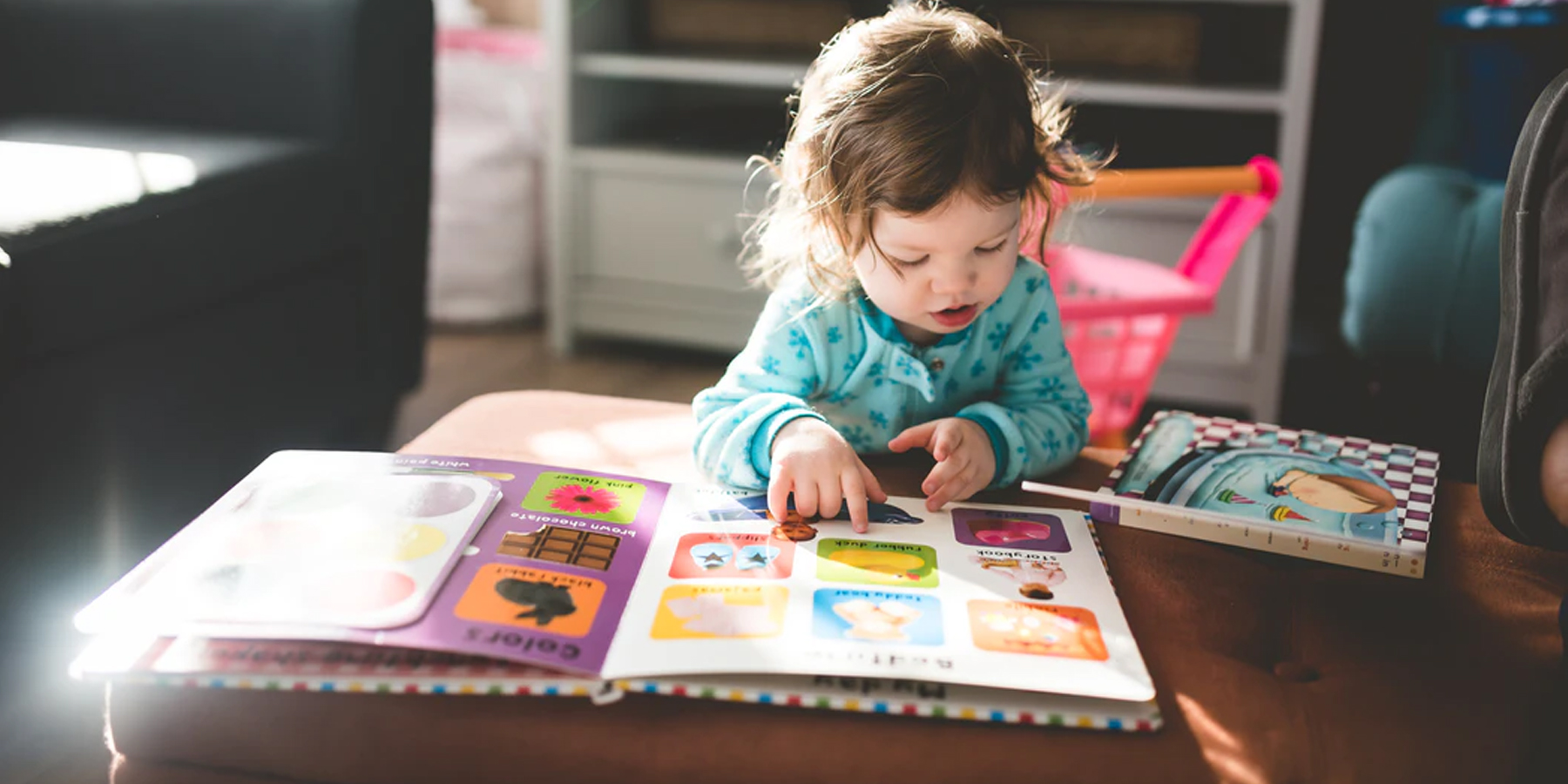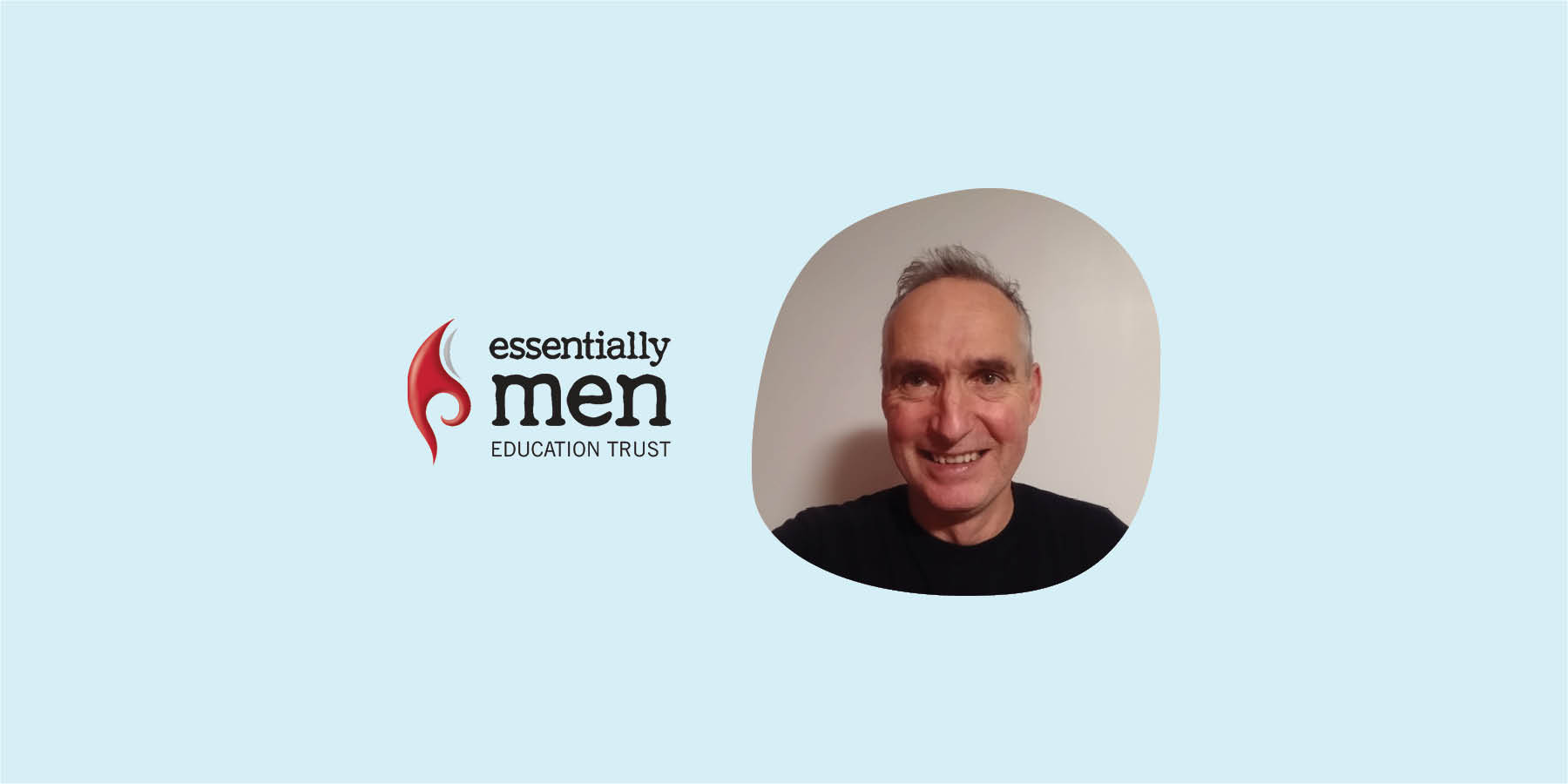What does a play specialist do for children in hospital?
Throughout their experience with childhood cancer, whānau will cross paths with many healthcare professionals who are there to help in different areas. Today we’d like to introduce Carolyn Dougal, a play specialist in Starship Children’s Hospital.
Carolyn initially trained as an early childhood teacher, which is the prior training of many hospital play specialists. This training gave her extensive knowledge of child development, which helps her support children of all ages – from tiny babies to teenagers.
While she was training to be a teacher, Carolyn got a job in the children’s ward in Dunedin Hospital providing a play programme for patients over the Christmas holidays. This experience showed her how powerful play can be at helping children cope with the hospital environment, ultimately leading her to pursue a career in the profession.

How would you describe your job to someone who doesn’t know what a play specialist does on a paediatric oncology ward?
I’d like to think I have the best job in the hospital. An important part of our role is welcoming families to the hospital environment. When families first learn their child has cancer it can be incredibly overwhelming and distressing for them, so by providing opportunities for play we are aiming to normalise the hospital environment.
Play is comforting and familiar to children and helps them cope and express their feelings. I love it when I hear a child say, “We have that book at my kindy” or “I like to play Lego at home”, as it means the child is feeling like they are in a familiar environment that they can explore through play.
Play specialists spend a lot of time with a child providing age-appropriate explanations and play around a medical procedure. For example, we will take Teddy’s blood pressure before the child has their blood pressure taken. We call this ‘healthcare play’ and provide children with medical equipment (real and pretend) so they can explore and re-enact what has happened to them. This helps children to gain a feeling of control and understanding.
I spend a lot of my day talking to doctors and nurses about what is happening for a child on that day. Often I am asked to provide distraction while a child is having a medical procedure, for example their port being accessed. By using a game on the iPad, an ‘I Spy’ book or an engaging toy, I can help them cope by shifting their focus from the procedure to something fun.
What fuels your passion for your work?
Definitely the amazing children, parents and families I meet every day. I am very inspired by the way parents become an expert in their child’s medical condition and the huge juggle they undertake to keep their family supported.
I am also passionate about the power of play and the huge impact it can have for children and young people. I love it when children want to come to clinic to play with a favourite toy instead of focusing on their treatment.
What is the most challenging part of your job?
Sometimes building a relationship with a newly diagnosed child and their family can be challenging as new families meet so many people when they first arrive in the hospital and it can be overwhelming for them. When a child doesn’t know you they think you have come to give them medicine or a medical procedure, so at times it can be very challenging to build a child’s trust.
In what ways has your job changed your perspective on life and health?
Working at Starship, I am constantly reminded of the importance of your family and not to take the health of yourself or your family for granted. I am continually inspired by families who continue to laugh and find joy despite their circumstances.
What do you think families appreciate most about what you do?
I think play specialists and play remind everyone that the child is a child first – they are not their condition but a dinosaur expert, Minecraft teacher, artist or musician. The power of play reminds us all that children are individuals with their own thoughts and ideas. We can learn so much from them.


